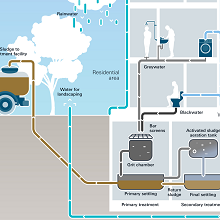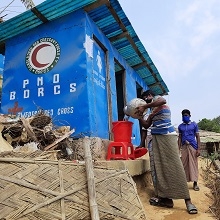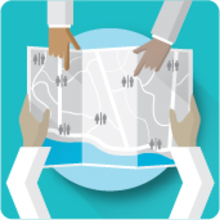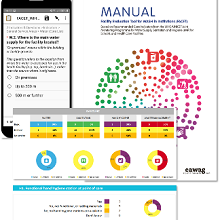Department Sanitation, Water and Solid Waste for Development
Strategic Environmental Sanitation Planning

Sandec’s research on Strategic Environmental Sanitation Planning (SESP) systematically addresses the complexity of urban sanitation in order to develop appropriate sanitation systems and services in low- and middle-income areas and emergency humanitarian settings. Our research provides evidence for improvements in policy and practice. The development, testing and implementation of structured planning and training tools contributes to state-of-the-art knowledge through our practice of active dissemination. We work in partnerships with local and international institutions to support sustainable urban sanitation approaches and to build capacity in the sector.
Our vision for urban sanitation planning is synthesised in this publication:
Towards Sustainable Sanitation in an Urbanising World.
Our research group has a strong focus on capacity development and offers training and eLearning on integrated, participatory sanitation planning (e.g. MOOC).










